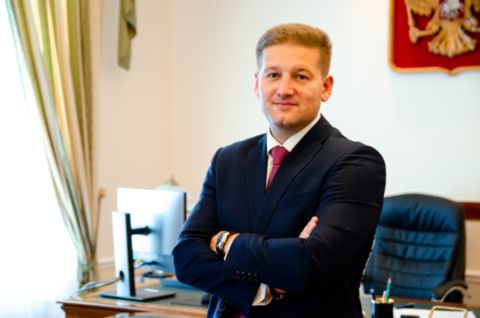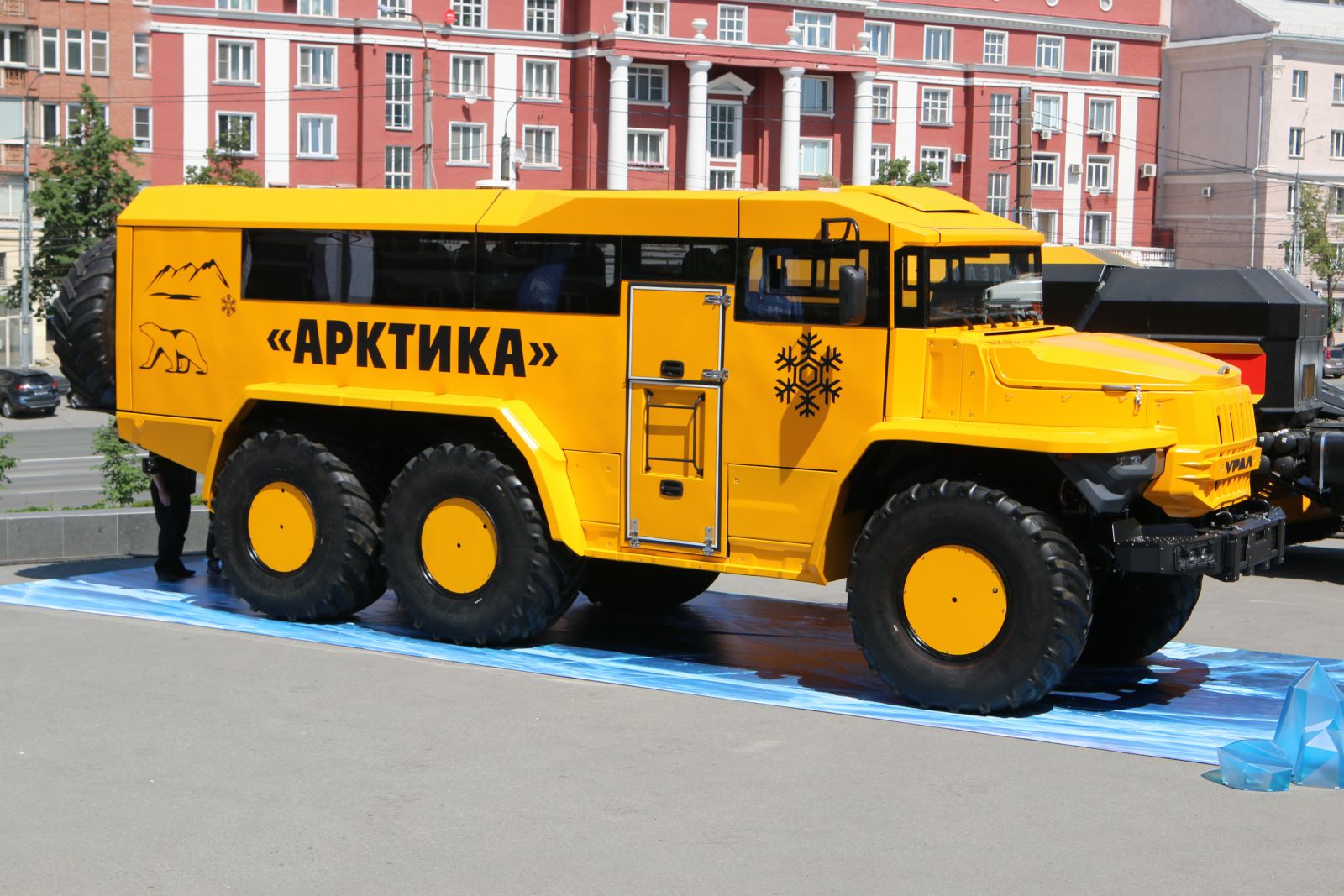Alexander Wagner is a Candidate of Sciences (Physics and Mathematics), a scientist, a member of the Russian Engineering Union, a public figure, an expert in high energy physics, and a graduate of the Skolkovo School of Management.
In 2006, Alexander Wagner graduated from the Tomsk Polytechnic University with a qualification of an engineering physicist. In 2009, he successfully defended his dissertation for the degree of Candidate of Sciences (Physics and Mathematics). Alexander Wagner is the author of more than 200 scientific papers. His Hirsch index (Scopus) is 35.
On April 21, 2023, the Minister of Science and Higher Education of the Russian Federation Valery Falkov signed an order appointing Alexander Wagner to the post of the Rector of South Ural State University.
– Mr. Wagner, how has been the development strategy of the university built during this year?
– Today, our university is mainly focused on the transformation of the mechanical engineering, metallurgical and space industries. The development of new production technologies for the industrial complex of the Ural region and the development of new types of products contribute to strengthening the technological sovereignty of Russia. I would like to note that our university will be able to effectively achieve its goals only jointly with industrial partners from both the Chelyabinsk Region and Russia as a whole.
– What projects is the university currently implementing jointly with industrial partners?
– In the framework of cooperation with the URAL Automobile Plant and Bauman Moscow State Technical University, we formed the fundamentals of design, production technology of automotive equipment, including a bus, a semi-trailer and a road train for working in the extreme conditions of the Arctic. A single-compartment version of this same machine sparked a furore at the second All-Russian Forum "From Import Substitution to Technological Sovereignty" held on June 9th.
– Could you please give us a little more detail on that? What is the fundamental difference between the Arctic bus and public passenger vehicles?
– Firstly, it is civilian equipment that is in demand in the conditions of the Far North, which has the systems necessary for such a climate. Secondly, the Arctic bus is designed for off-road driving, it can easily move through snow, swamps and impassable mud. Its functional significance is enormous.
What is also important for the Far North is life support: the bus is able to maintain life support systems throughout the day in extreme situations. The Arctic bus is a competitive vehicle for the construction and operation of the supporting ground infrastructure of the Northern Sea Route.
– You also noted that one of the strategic directions of SUSU development is the space industry. Could you please tell us what projects SUSU is implementing in this area? How successful are they, and most importantly, how much are they in demand?
– The Chelyabinsk Region is a key link in terms of creating new products of strategic deterrent weapons. Today, the experience of the engineers of the Roscosmos state corporation and our scientists is aimed at creating an effective model and relevant content of educational programmes for training the corps of engineers in a wide range of areas.
An example of successful cooperation between business, science and the Government of the Chelyabinsk Region for the development of new technologies is the design of a demonstrator of a multi-chamber propulsion system with a central body and a digital test bench verified by the test results of this demonstrator. The project is being carried out in the interests and under the scientific and technological support of the Academician V.P. Makeyev State Rocket Centre in order to form a scientific and technological reserve for training designers, researchers and engineers of a new generation and confirming the key technologies of a single-stage reusable launch vehicle.
These works received support within the framework of the Science and Universities National Project, from the Government of the Chelyabinsk Region and the World-class Ural Interregional Research and Education Centre for Advanced Industrial Technologies and Materials, without which the implementation would have been impossible.
.jpg)
– Please, tell us about the leading developments of SUSU in the field of advanced technologies.
– Quantum physics and quantum technologies are very progressive areas in science and technology, covering secure communications, supercomputers, and even personal medicine in the future. A Quantum Engineering of Light Laboratory was opened at SUSU. The laboratory and the scientific school were headed by a world-famous scientist in the field of quantum physics and quantum technologies ‑ Sergei Kulik, Doctor of Sciences (Physics and Mathematics), Professor. The Scientific Director of the National Centre for Physics and Mathematics, ex-President of the Russian Academy of Sciences Aleksandr Sergeev highly appreciated our work:
"South Ural State University is a place where the importance of interaction between different scientists, research methods and technologies is very well understood: there are many new laboratories at SUSU that you organize; you invite leading scientists to head these laboratories and form a team of researchers; you orient young people who see these interesting people, young scientists are ready to work, write dissertations under their guidance. And this is how a real scientific school is formed, the followers of which will pick up this scientific process further and develop it."
– Ecology is one of the most important issues in Russia today. For Chelyabinsk, this is what is called a vital issue.
– A Centre for Environmental Monitoring has been formed at the university. Here work is being carried out that is aimed at the development of "green technologies" and environmental monitoring. In particular, two software and technological complexes for dynamic environmental monitoring of industrial facilities and vehicles were developed and implemented. The motor transport complex has been introduced in Chelyabinsk, Magnitogorsk, Perm and St. Petersburg on a commercial basis, pilot projects are being worked out in other cities of Russia and foreign countries.
At the turn of the eighth and ninth decades, South Ural State University is entering a new era of its development. The key project of this era for both the university and the entire scientific and educational complex of the Chelyabinsk Region is the world-class Campus in the Chelyabinsk Region, which determines the vector and potential of the scientific and technological development of the region for the next 100 years. The campus has become a generator of new ideas and production technologies, the main base for the upbringing and education of engineers, teachers and scientists. The university sets itself an ambitious aim: fostering highly qualified specialists for the needs of the region and our country.
I am sure that the construction of an inter-university campus in the Chelyabinsk Region will make it possible to meet the main challenges that will be reflected in the socio-economic development of the region. I feel confident that we will solve the problem of the shortage of highly qualified scientific and engineering personnel, as well as create the necessary conditions for achieving scientific and technological security and sovereignty.
.jpg)





